Don't Miss the Latest CSRL FundISU Campaign!
Good morning and greetings from the Iowa State University’s Center for Sustainable Rural Livelihoods (CSRL) and its Uganda Program (ISU-UP)! We are grateful for your past support of CSRL's work in Uganda.
Our current FundISU project is assisting individuals in obtaining the knowledge and boost they need to provide for themselves and improve their families’ long-term livelihoods and can be found at https://fundisu.foundation.iastate.edu/CSRL23.
This project is ending on Friday, July 8, and every contribution makes a difference! Be part of the first $25,000 contributed, and your donation will be doubled!
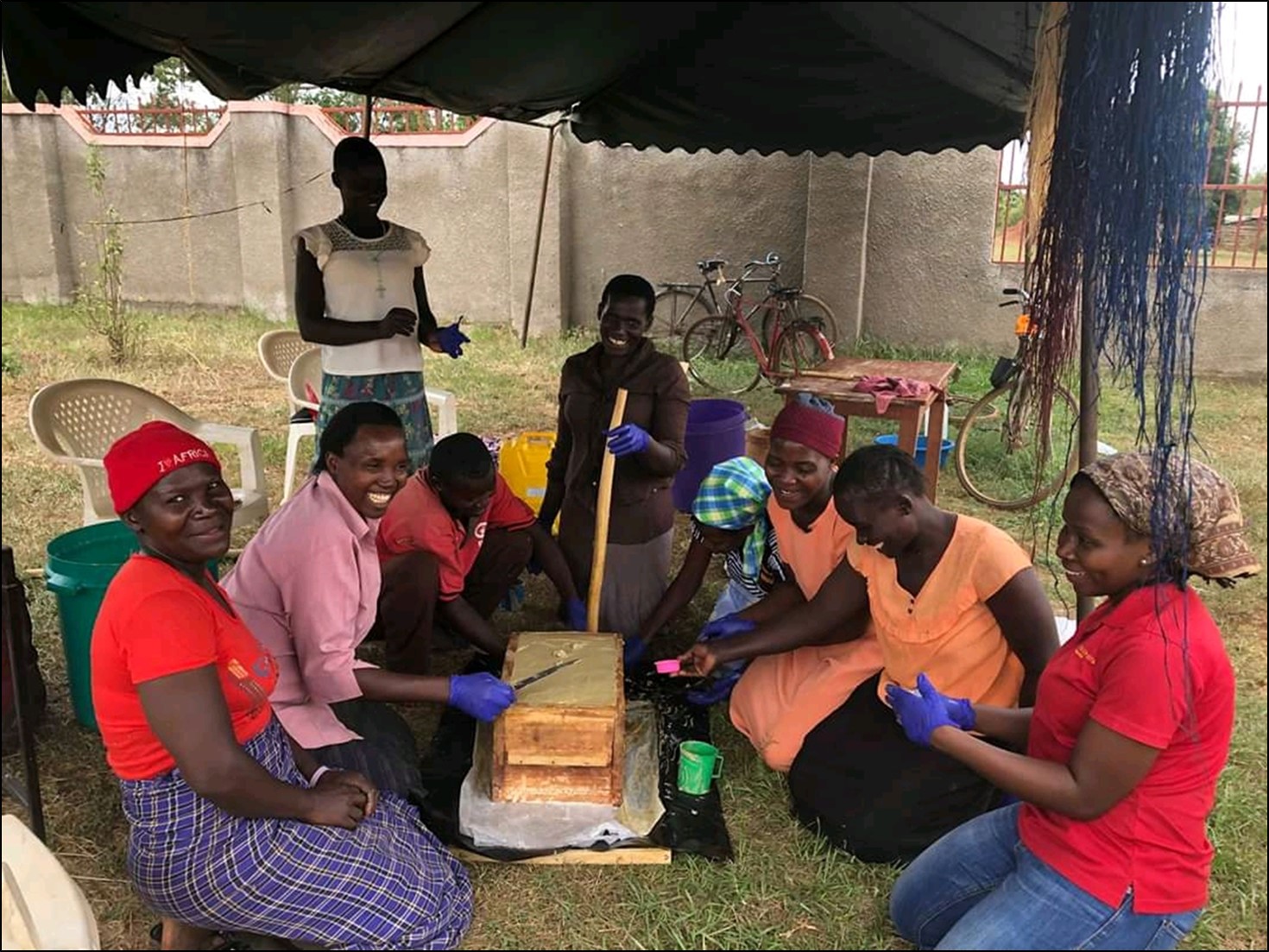
You can learn more about this year's campaign over at https://fundisu.foundation.iastate.edu/CSRL23.
See you there, and thank you for your support!
Our newest CSRL FundISU campaign has launched!
The recipe for sustainable livelihoods includes many ingredients.
Iowa State University’s Center for Sustainable Rural Livelihoods (CSRL) and its Uganda Program (ISU-UP) use the power of education to develop responsible global citizens and thriving local communities that benefit from food and financial security, healthcare, civic participation, social inclusion, and environmental stewardship.
One key set of ingredients in achieving our mission is skills development for self-reliance, which is the focus of our newest FundISU campaign, which can be found at https://fundisu.foundation.iastate.edu/CSRL23.
We are grateful for your past support of CSRL's work in Uganda, and we hope you'll find our newest project just as compelling. With your help, we can assist individuals in obtaining the knowledge and boost they need to provide for themselves and improve their families’ long-term livelihoods.
Every contribution makes a difference! Be part of the first $25,000 contributed, and your donation will be doubled!

We did it! Thank you very much for helping us exceed our goal!
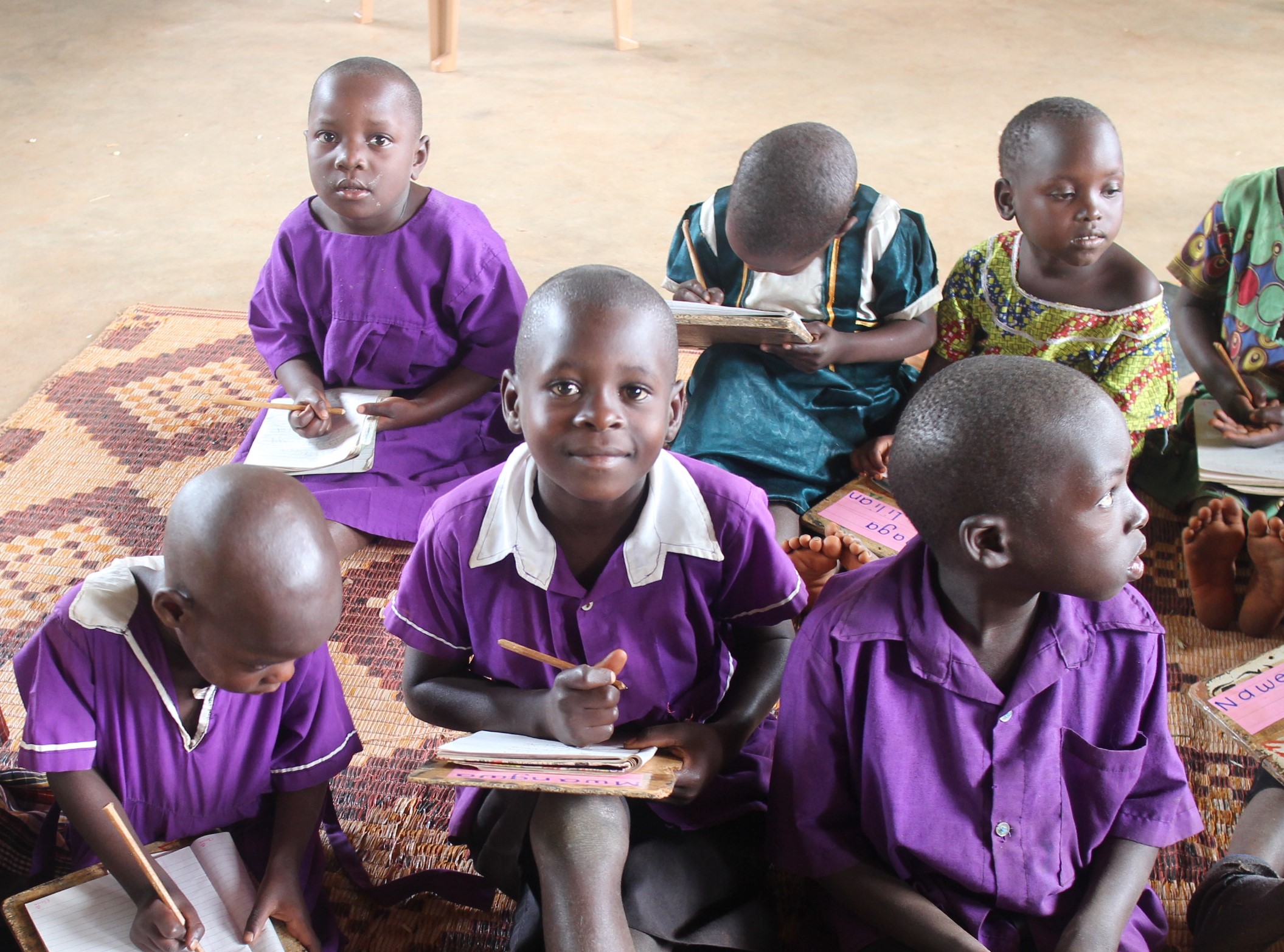
We at the Center for Sustainable Rural Livelihoods and our Iowa State University–Uganda Program team in Kamuli are truly grateful to you for supporting our new Early Childhood Development program. Your contributions helped exceed our $30,000 goal by raising a total of $36,520!
Thanks to you, pre-school-age children in the Kamuli district will have a more substantial opportunity for a brighter future. Your contributions will be directed toward improved nutrition, age-appropriate learning materials, more teachers’ aides/assistants, and appropriate school infrastructure, including classrooms, latrines, kitchens, and playgrounds that support safety, sanitation, and engaged learning.
We encourage you to stay connected with the ISU Center for Sustainable Rural Livelihoods initiatives by visiting our website or following us on Facebook. Our essential work happens year-round. Financial contributions to our ongoing development efforts are continually accepted at www.foundation.iastate.edu/CSRL.
Mwebale Inho! Thank you very much!
On Giving Tuesday, ensure a promising future for pre-school-age children in Kamuli
Can you believe that December is almost here?! It's Giving Tuesday and a perfect way to wrap up the FundISU CSRL Uganda Early Childhood Development campaign. Thanks to our generous donors we have reached 87% of our goal! And there is still time to make a gift to push us to our goal before this project ends on December 01, at 11:59 PM CST.
Every dollar makes a difference-
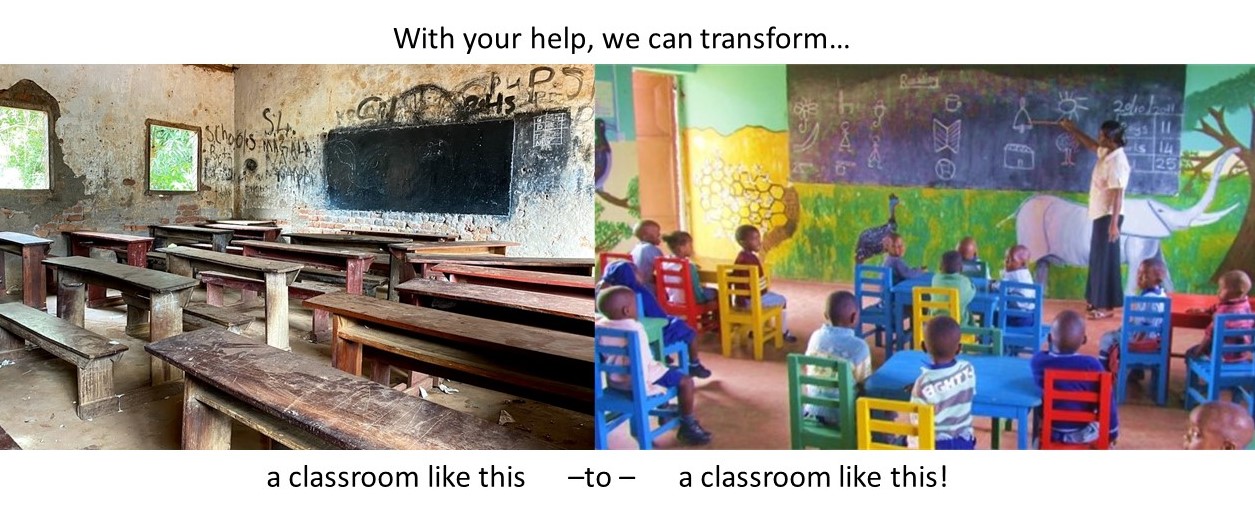
The Center for Sustainable Rural Livelihoods (CSRL) and Iowa State University – Uganda Program (ISU-UP) use the power of education to develop sustainable communities and responsible global citizens. We developed a lifespan program delivery model that seeks to serve all age groups in our endeavor to end hunger. But there is a gap in our model. Would you help us to fill the need for early childhood development?
Please join us in our effort to ensure a promising future for pre-school-age children in Kamuli District, Uganda by investing in their growth and development. You can help us to provide age-appropriate learning materials, improve health through a nutrient-dense lunch and mid-morning snack, increase the teacher/student ratio, and greatly improve the learning environment through class furnishings and appropriate school infrastructure.
Thank you for your gift and for spreading the word: https://fundisu.foundation.iastate.edu/CSRL2021. Together, we are making a difference!
Thankful for Story Time
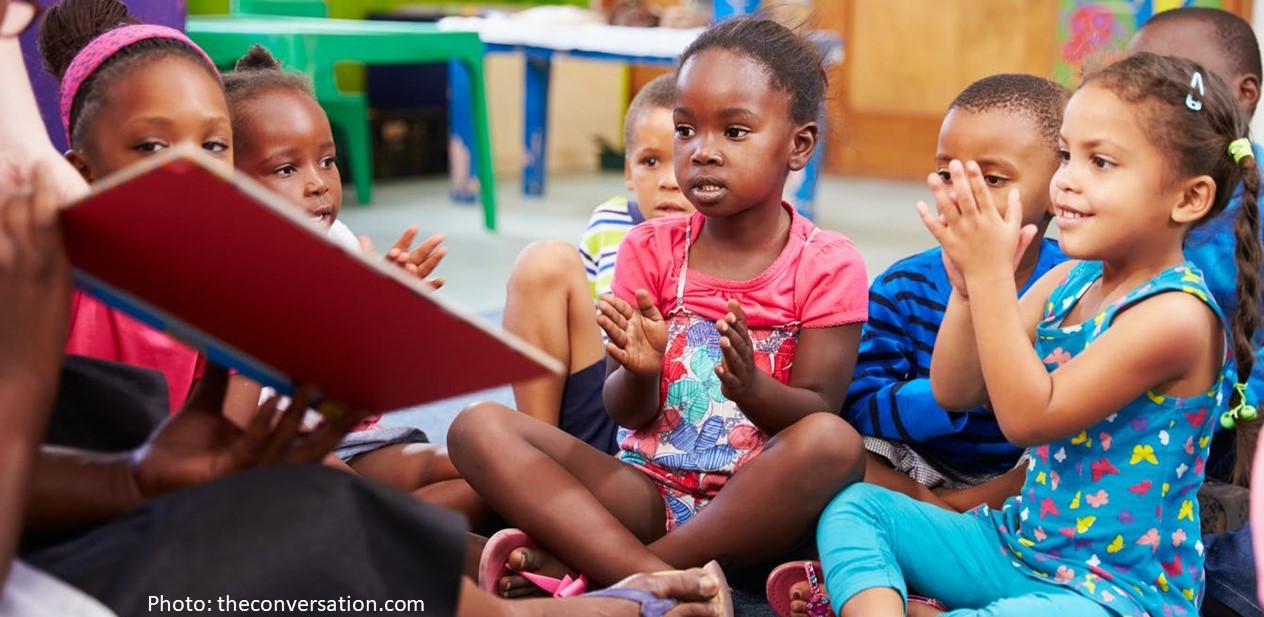
In the U.S. most of us have access to books for free through our neighborhood public library. However, books are not commonplace items in Uganda. One reason is that they are not affordable to most rural families. One book could cost the equivalent of a week’s worth of groceries! (bbc.com/news/world-africa-36230245). An outcome of this is that eight of every ten children of 10 years or under in Uganda cannot read (africanlibraryproject.org/). Join the CSRL Uganda Early Childhood Development campaign to help change this.
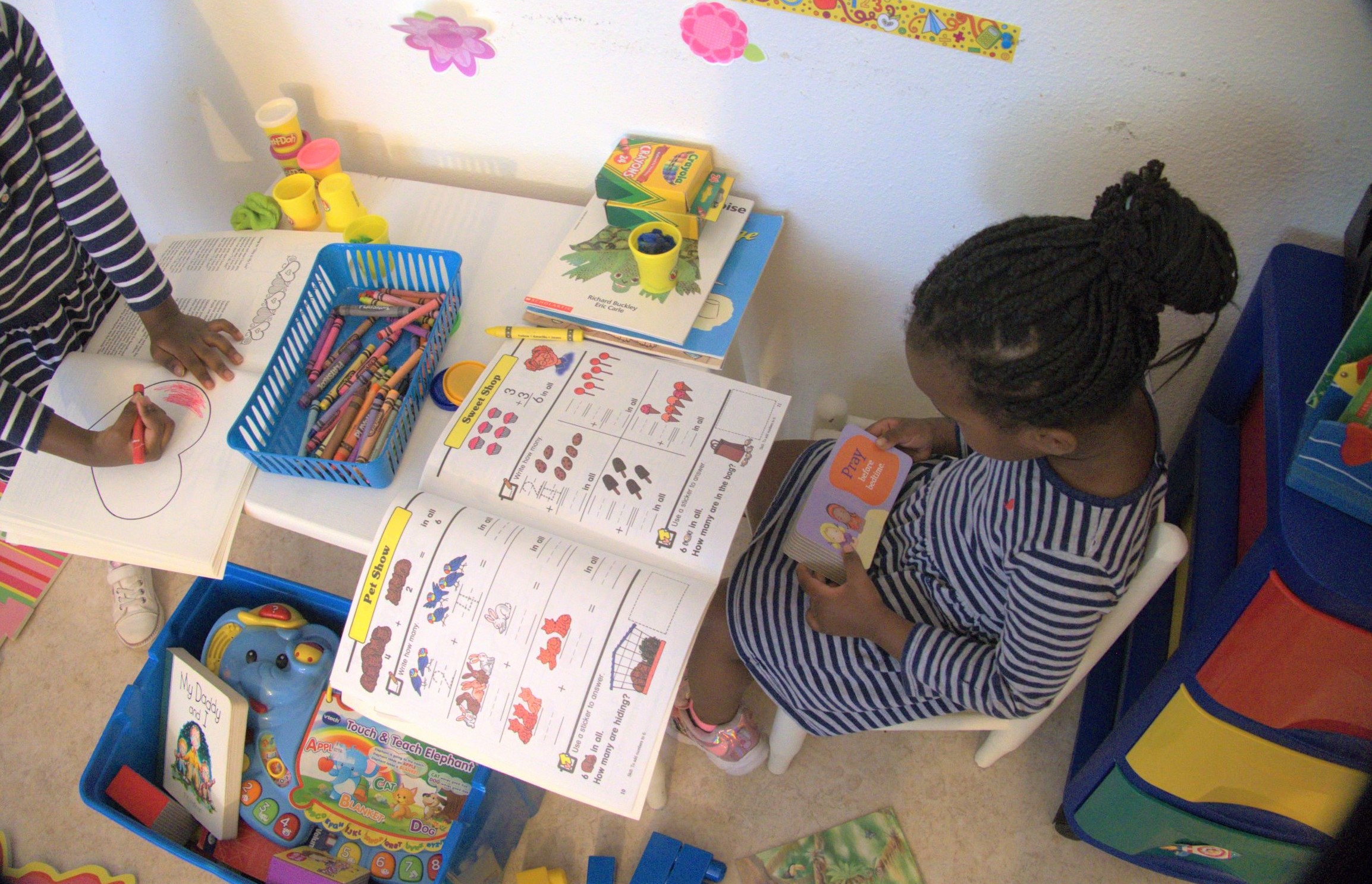
Why Do Kids Need Books?
- Books create warm emotional bonds between adults and kids when they read books together.
- Books help kids develop basic language skills and profoundly expand their vocabularies
- Books are interactive; they demand that kids think.
- Books develop critical thinking skills.
- Books develop and nourish kids’ imaginations, expanding their worlds.
- Books give kids an opportunity to experience something in their imaginations before it happens to them in real life.
- Books help us to understand ourselves, to find out who we are.
- Books help children and adults to open up, to move beyond self-absorption and connect to other people.
- Books help kids to chart their own moral and ethical course.
- Books create questions.
- Books answer questions.
- Books provide the opportunity to share cultural experiences.
- Books offer a wide breadth of information, experience, and knowledge.
- Books entertain and offer a great escape.
- Books are great companions.
- Books comfort us.
- BOOKS INSPIRE US TO DREAM.
- BOOKS GIVE US THE TOOLS TO ACHIEVE OUR DREAMS. (thenclba.org)
Every gift, large and small, makes an impact! A donation of $500 will provide an early childhood book collection for one entire classroom! This Thanksgiving season, you can help give Kamuli preschool children the tools to achieve their dreams by sharing this message or making a contribution. Thank you!
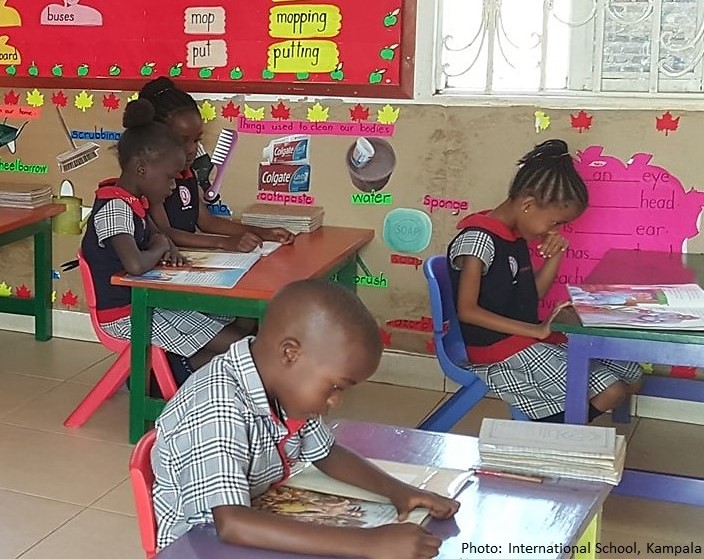
Better Future For Every Child
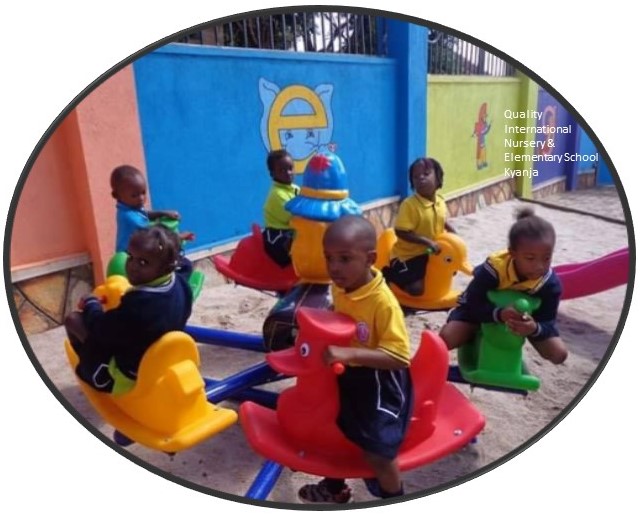
World Children's Day offers each of us an inspirational entry-point to advocate, promote and celebrate children's rights, translating into dialogues and actions that will build a better world for children (UN.org). We invite you to take action through the CSRL Uganda Early Childhood Development campaign.
First established in 1954 World Children’s Day is celebrated on 20 November each year to promote international togetherness, awareness among children worldwide, and improving children's welfare. November 20, 1959 is when the United Nations General Assembly adopted the Declaration of the Rights of the Child. It is also the date in 1989 when the UN General Assembly adopted the Convention on the Rights of the Child.
The World Children’s Day theme for 2021 is a Better Future For Every Child. Help CSRL to launch our early childhood development program. We hope to provide age-appropriate learning materials, improve nutrition, increase the number of teachers’ aides/assistants, and improve school infrastructure. Every dollar makes a difference! A gift of $250 can transform a playground.
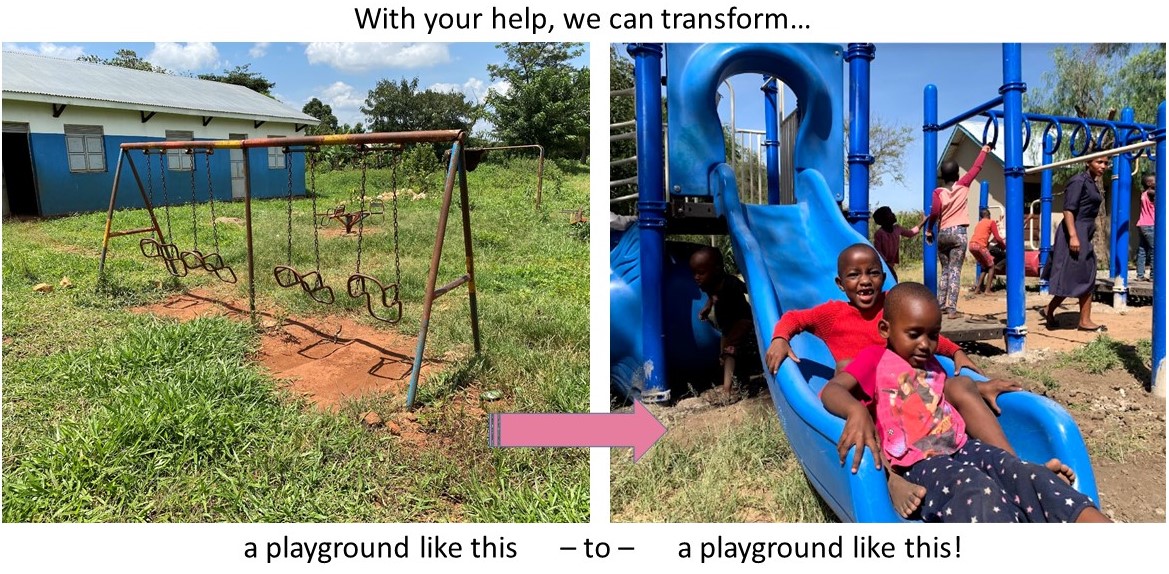
You can play an important part in making World Children's Day relevant to the Kamuli community by sharing this message or providing a gift. Thank you!
Setting the table, setting the future
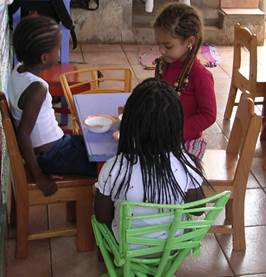
Kid-friendly dishes and kid-size furniture are much more than cute. Building a positive learning environment sets the table for the future. Learning environments are nurturing spaces that support the development of young children and include age-appropriate equipment, materials, and supplies.
Well-designed classroom environments for pre-school age children:
- Support responsive caregiving
- Foster independence and feelings of competence in young children
- Encourage staff efficiency
- Promote children’s engagement
- Decrease challenging behavior
- Facilitate appropriate social interactions among children
- Provide structure and predictability [iris.peabody.vanderbilt.edu]
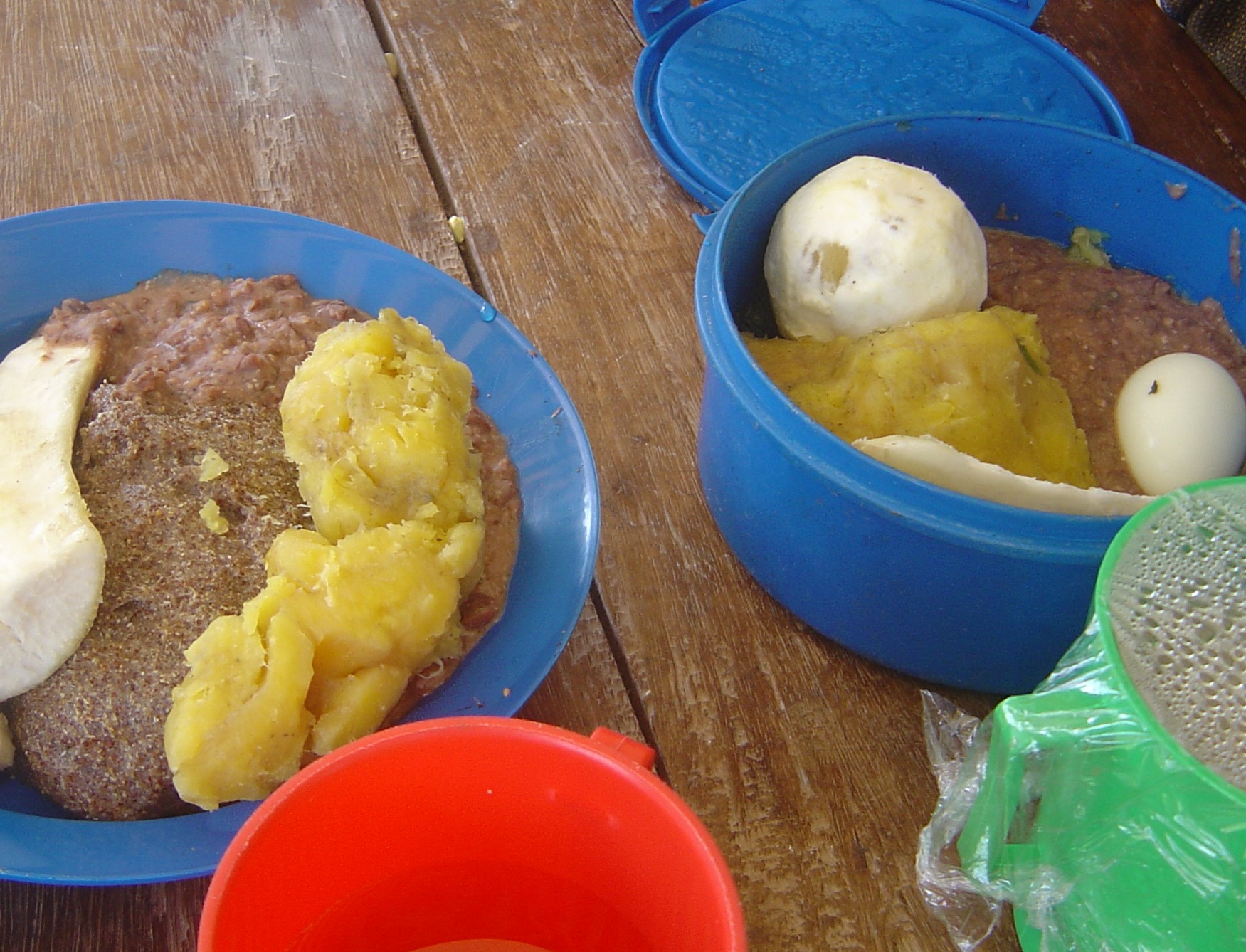 A well-laid environment can help preschoolers feel secure, engaged, and inquisitive. Two primary components of engaged learning are student motivation and active learning. An engaging learning environment increases students’ attention, and focus promotes meaningful learning experiences, encourages higher levels of student performance, and motivates students to practice higher-level critical thinking skills.
A well-laid environment can help preschoolers feel secure, engaged, and inquisitive. Two primary components of engaged learning are student motivation and active learning. An engaging learning environment increases students’ attention, and focus promotes meaningful learning experiences, encourages higher levels of student performance, and motivates students to practice higher-level critical thinking skills.
You’re invited to invest in early childhood development in Kamuli, Uganda. A gift of $100 will provide a set of dishes, cups, and utensils for feeding 30 children. $150 will provide a set of age-appropriate classroom furniture for four children. Every dollar makes a difference! Be part of the first $12,500 contributed, and your donation will be doubled! Please spread the word.
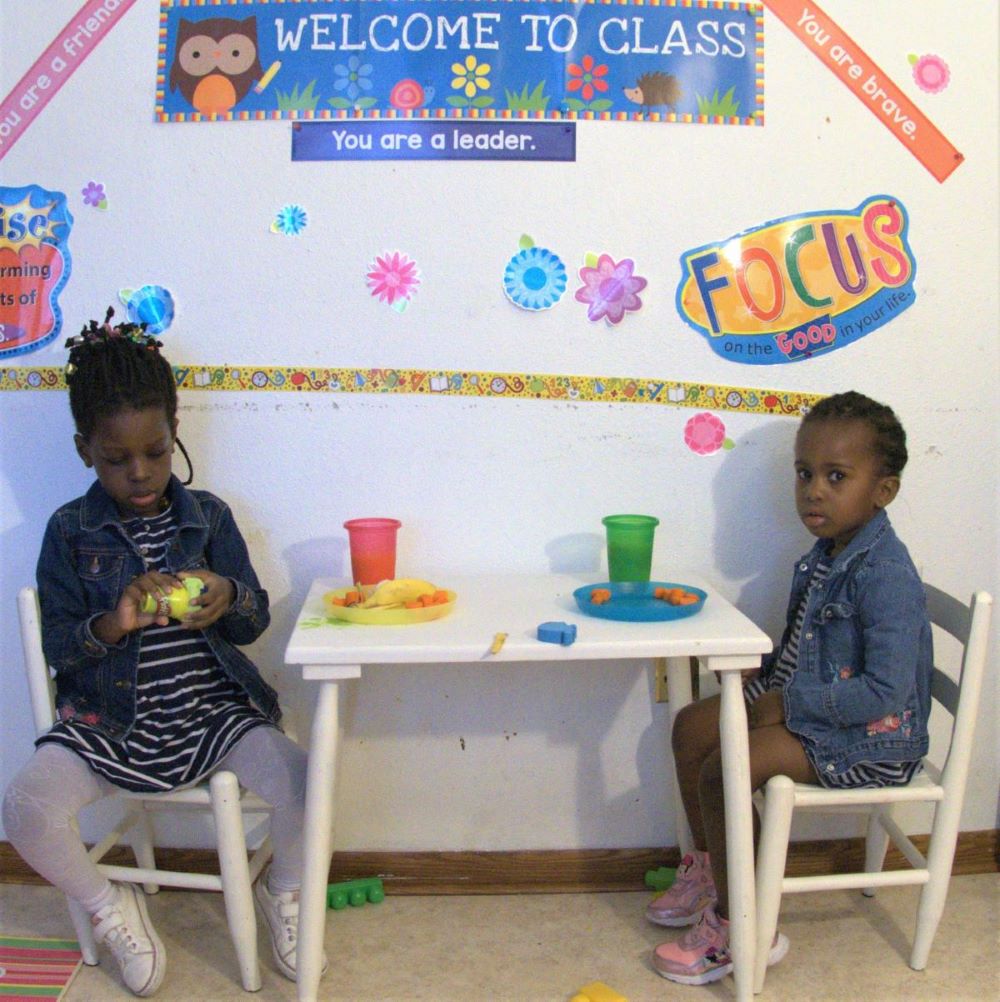
Teachers - the building blocks of learning
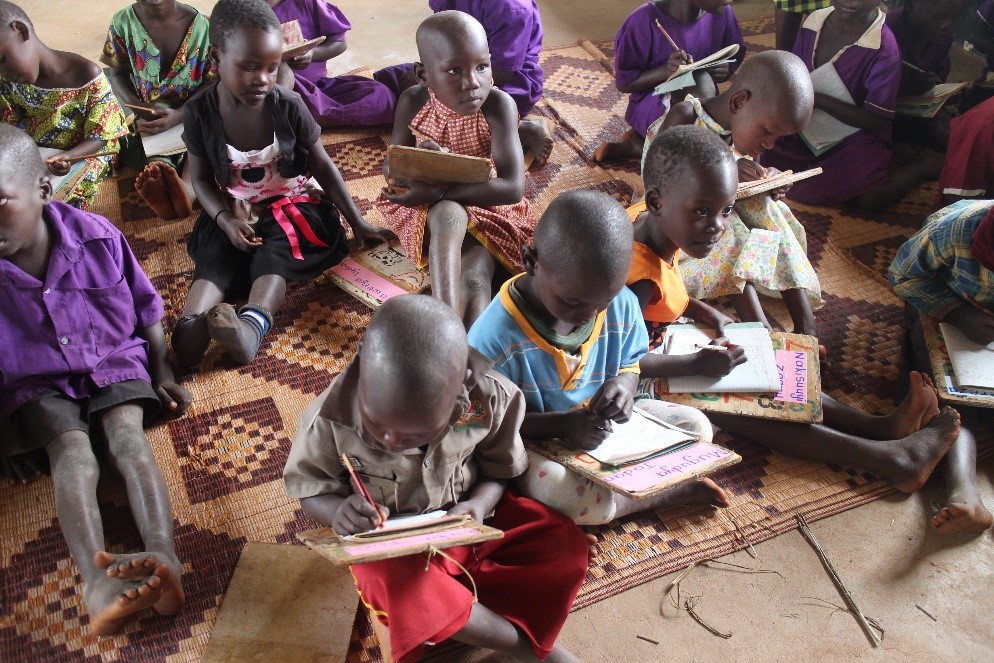 Pre-school/kindergarten children at Nakanyonyi Primary School in a classroom with very basic supplies
Pre-school/kindergarten children at Nakanyonyi Primary School in a classroom with very basic supplies
Addressing early childhood development and nutrition is a crucial step in CSRL’s Theory of Change to ending hunger. With your help, the Iowa State University-Uganda Program in partnership with schools in the Kamuli district will make quality early childhood development available.
Appropriate teacher-child ratios are one of the main aspects of a high-quality early childhood program. Currently in Uganda (if early childhood education is available at all) the average pupil-to-teacher ratio is 22.03 to 1. [UNESCO, indexmundi.com]. In Kamuli, one teacher may have from 35 – 75 or more preschool children in a single class!
Lower class sizes and smaller teacher-child ratios have been shown to improve child outcomes. ChildCare.gov states there should be no more than 12–20 preschoolers in a group or classroom, 1 trained adult should not care for more than 6–10 preschoolers, and 2 trained adults should always be present in a full group of 12–20.
It’s a common misperception that early childhood education is only about learning basic skills, but it’s so much more than that. It’s a time when children learn critical social and emotional skills and a partnership is formed between the child, their parents, and the teacher. When this is done successfully, it lays the groundwork for it to continue throughout the child’s education. [J. Alvarado, nu.edu]
Every contribution and message shared makes a difference! A gift of $60 provides a month’s wage for one teacher’s assistant. Be part of the first $12,500 contributed and your donation will be doubled!
 private school classroom with both teacher and teaching assistant
private school classroom with both teacher and teaching assistant
Toys that teach
Despite it being a critical developmental stage, early childhood education programs in rural areas of Uganda are extremely limited. With your help, CSRL hopes to change that at our partner schools in Kamuli District. A breadth of support is needed including physical structures, nutrition, teachers, and even toys!
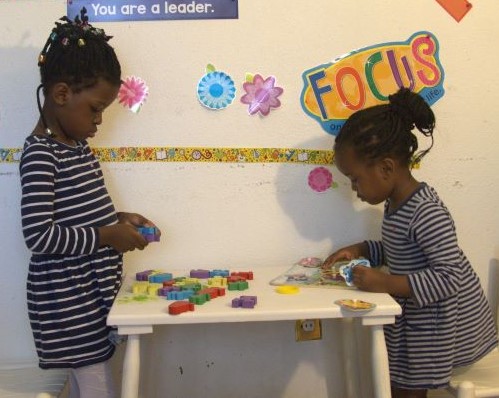
In the U.S., we sometimes overwhelm our children with toys. In Kamuli, educational games and puzzles for small children are more of a rarity. Making the right toys available at the right time provides many physical and mental benefits to a child’s early development including-
Physical skills:
- Hand-eye coordination
- Gross motor skills
- Fine motor skills
Cognitive skills:
- Shape recognition
- Color recognition
- Spatial relations
- Memory
- Problem-solving
- Creativity
Emotional Skills
- Setting goals
- Patience
- Self-esteem
(Hassan Alnassir, 2019; Michelle Manno, 2013)
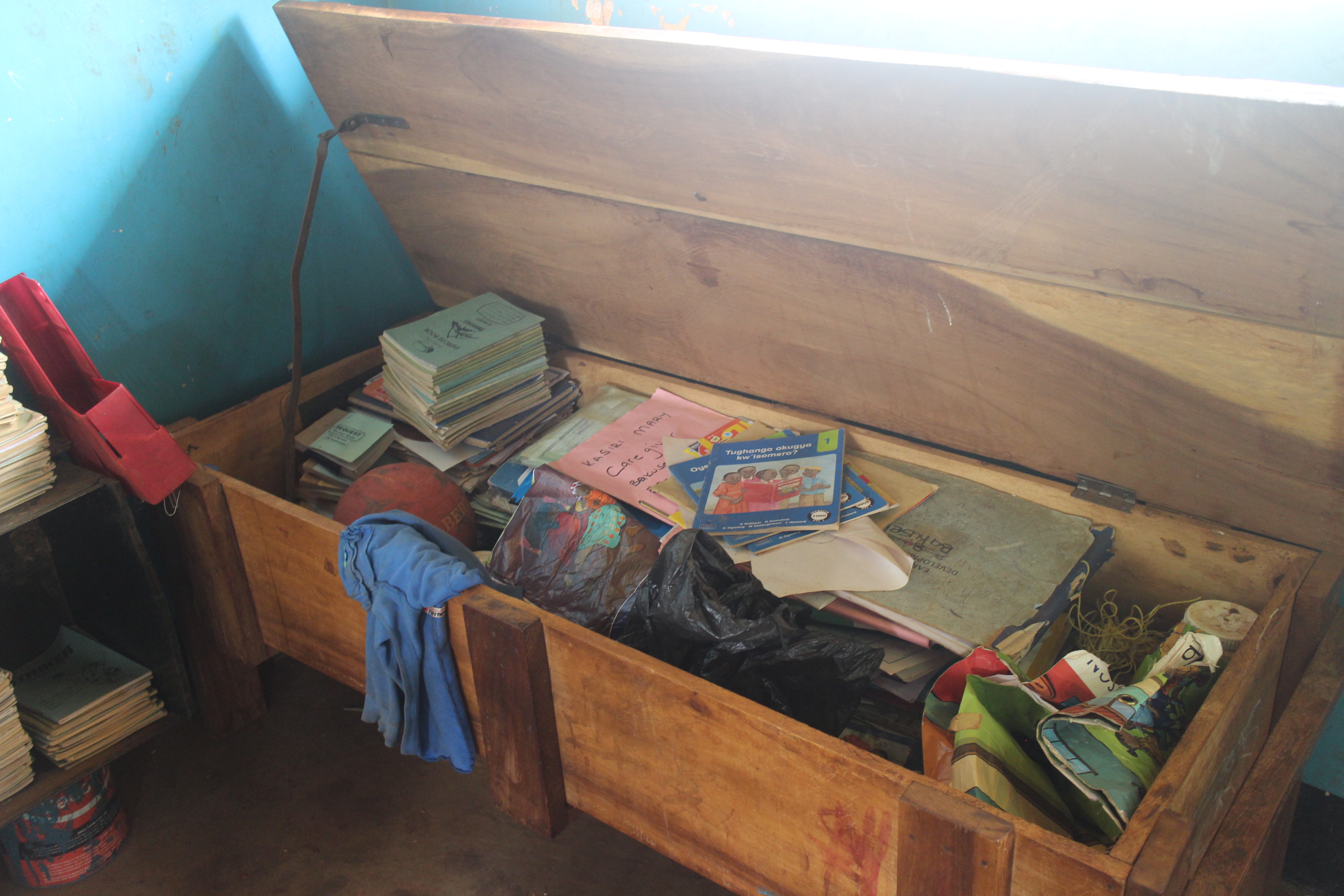
Help to brighten supplies chests like this one in Kamuli by donating or spreading the word. Contributions at any level make a difference. And if your gift is one of the first $12,500 contributed, your donation will be doubled through matching funds!
Nourishment for young minds and bodies
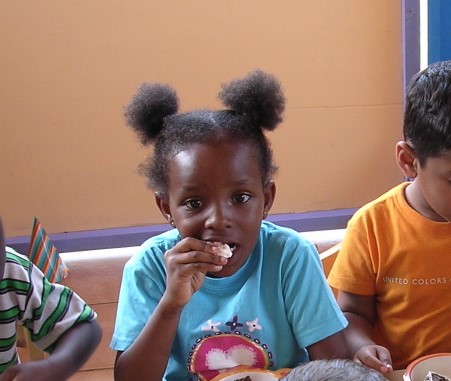
The brain is an energy-hungry organ. Despite comprising only 2 percent of the body’s weight, the brain gobbles up more than 20 percent of daily energy intake. Because the brain demands such high amounts of energy, the foods we consume greatly affect brain function, including everything from learning and memory to emotions. [BrainFacts.org]
Healthy eating is particularly important in childhood for proper growth and development and to prevent various health conditions. Eating a healthy breakfast is associated with improved cognitive function, reduced absenteeism, and improved mood. [CDC.gov]
Young children, whose brains are rapidly developing, need a nutrient-dense diet to help them as they process the world around them. Without the right nutrients, toddlers and preschoolers might struggle to develop the skills they need as they get older. Healthy eating in early childhood may even yield benefits that are only measurable later in life. [Kids Club]
Nurturing the pre-school kids of Kumuli is a critical step in the CSRL lifespan approach to ending hunger. A $35 contribution to the Early Childhood Development program will provide a nutritious breakfast, mid-morning snack, and lunch for 30 children for one week!
Generous donors are matching every dollar donated up to the first $12,500! Please be sure to donate early to double your impact and help by spreading the word to others.
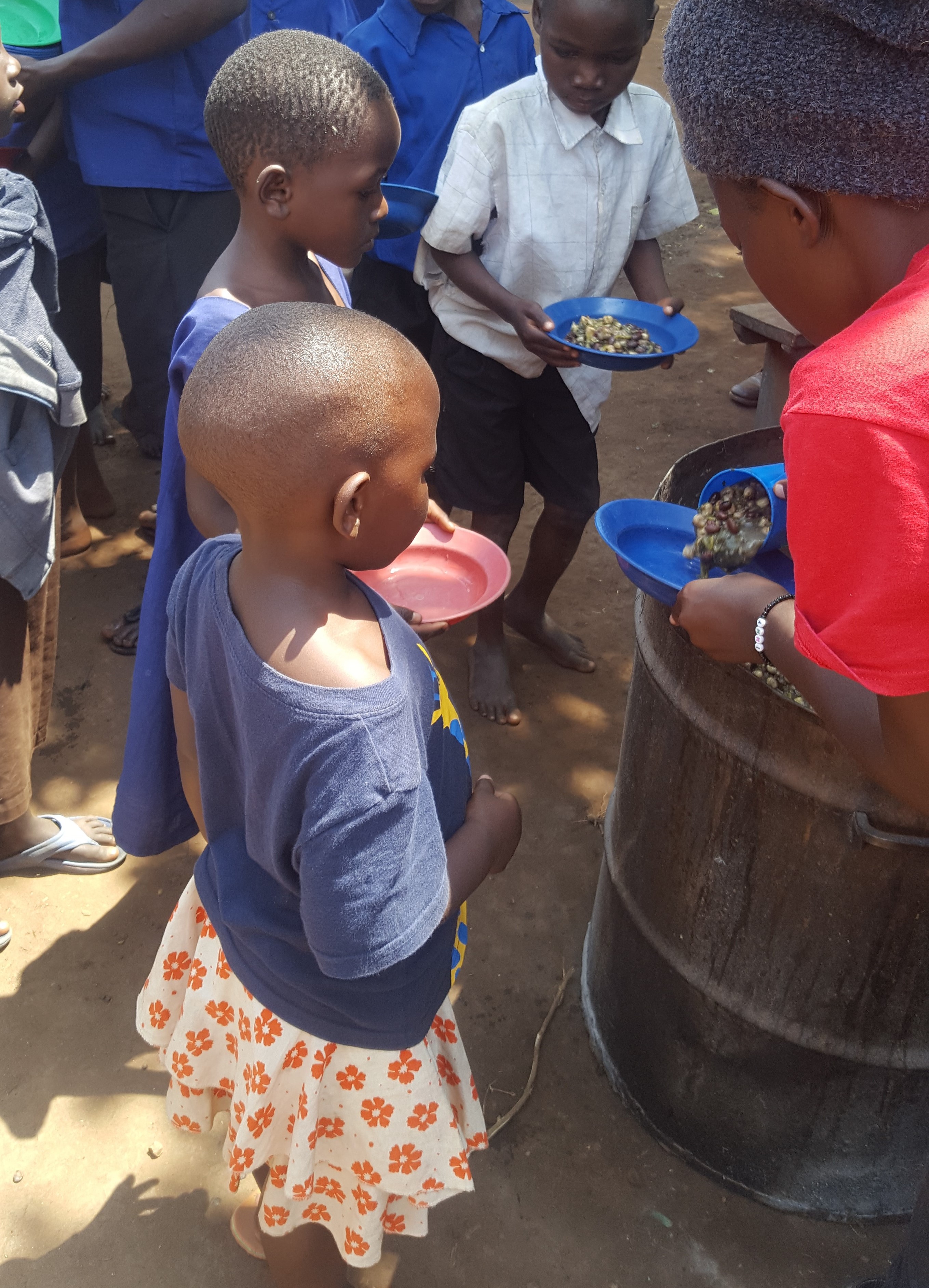
$60
Teacher assistance
Monthly wage for one teacher’s assistant to improve staff:child ratio
